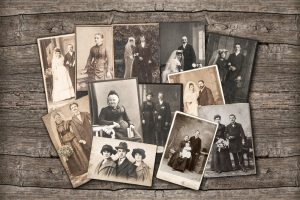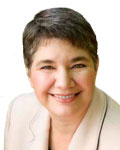She stands there – a 40ish woman, dressed in slim jeans and what looks like her best matching denim top. “I wanted to know who I am,” she says, looking straight at the camera. The “am” sounds pleading. She’s looking to her ancestors to define who she is.
 Other things might say who she is – a chef, teacher, mother, aunt, musician, member of MENSA, soap-opera watcher, thief, college graduate, wife, widow, activist, daughter, knitter, collector of old vinyl records, someone addicted to yoga, a smoker, hoarder, recycler, dreamer, writer, lawyer, unhappy employee, cancer survivor, foster mother, artist, kayaker, app developer, doctor, ethicist – to name a few. Wouldn’t some of these things tell who she is?
Other things might say who she is – a chef, teacher, mother, aunt, musician, member of MENSA, soap-opera watcher, thief, college graduate, wife, widow, activist, daughter, knitter, collector of old vinyl records, someone addicted to yoga, a smoker, hoarder, recycler, dreamer, writer, lawyer, unhappy employee, cancer survivor, foster mother, artist, kayaker, app developer, doctor, ethicist – to name a few. Wouldn’t some of these things tell who she is?
Yes, I’m equating identity with what we do. How we act in the world and the things we do show our interests, values, aspirations, and spirit. And those speak loudly about who we are.
The Ancestors Craze
 Ancestry.com is the major promoter of finding out “who I am.” According to Wikipedia, “as of June 2014, the company provided access to approximately 16 billion historical records and had over 2 million paying subscribers. User-generated content tallies to more than 70 million family trees, and subscribers have added more than 200 million photographs, scanned documents, and written stories.[5]”
Ancestry.com is the major promoter of finding out “who I am.” According to Wikipedia, “as of June 2014, the company provided access to approximately 16 billion historical records and had over 2 million paying subscribers. User-generated content tallies to more than 70 million family trees, and subscribers have added more than 200 million photographs, scanned documents, and written stories.[5]”
I think this focus on ancestors (and ethnicity) is dangerous. The U.S, and now most countries, are melting pots. The U.S. was founded on being a place where one became an American.
This focus on ethnicity – one’s own or other’s – separates us. It parses out the ingredients in the pot. We’re not concentrating on stirring the soup so it blends together. We’re focusing on each ingredient: onions, carrots, beef, chicken, potatoes, green beans, noodles, bok choy, tomatoes, each spice.
Here’s the thing – ingredients change when they’re cooked together, their flavors meld, they become part of something bigger. They lose some of their separate and distinct flavor and absorb others. Both Americans and immigrants have roles to play in creating something bigger than themselves. Americans need to accept others, and immigrants need to work on fitting in, on language and customs to blend in and create a cohesive country.
This “I am only who my ancestors were” phase belittles our own agency, our own powers to become.
Past – Present – Future
 I have a magnet that sums up my belief. It says, “Life isn’t about finding yourself. Life is about creating yourself.” The wisdom is attributed to George Bernard Shaw.
I have a magnet that sums up my belief. It says, “Life isn’t about finding yourself. Life is about creating yourself.” The wisdom is attributed to George Bernard Shaw.
Knowing a few generations of your ethnicity is not the whole story of who you are (or who I am). So rather than trying to find out if I’m 30% this, 22% that, 5% something else, 40% that, and 3% a mystery, and finding myself in my past, I’m going to find myself in the now. I’ll choose my actions and create who I am, knowing I’m one ingredient in this delicious soup called the U.S.A. I invite you to do the same in whatever country you live in.
Do you agree? Disagree? Please let us know by commenting below. And if you find this thought-provoking, please share it on social media (see icons below.)
By Bojinka Bishop, June 2017
See Comments. Click here. Share your ideas and comments. Click here.
Related stories:
- Going to the hospital – ambulance vs. driving Sometimes it’s better to take an ambulance to the hospital than have a friend drive you in an emergency. It may sound scary and lonely, but it maybe better for you. Why?...
- When feeling good goes bad – Inside Dahn YogaAshley, Renee and six others stood in pairs massaging each others’ shoulders, scratching each others’ backs, and sweeping away stagnant energy with their hands. Then they hugged each other tightly, let go enough to bow to each other, and said, “kam sa ham ni da.”...
- Sometimes it’s good to fly lowPelicans fly low sometimes, skimming along the surface of the water. (Not flying high now.) They’re mostly looking for a meal, for nourishment. Being low has its benefits for pelicans. And, I’ve decided, for me, too....
- Going solo – Making bread in ParisYou don’t have to be single to enjoy going solo. This Ohio wife and mother took off to Paris and went to baking school. It helps that she’s French, of course. Helps that she had an apartment there. But her solo adventure was still hard work. And a labor of...
- Being Jan Ehrlichman – Watergate and beyondIn 1976, Jan was 23, slim, blonde, athletic, a talented pianist, fresh out of Principia College. She’d had a privileged upbringing, she’d even met presidents. To use a phrase popular at the time, the world was her oyster – or should have been....
Comment(s) on Focusing on your ancestors has a downside
FlyingHighSolo.com
Celebrating special people, good ideas, and useful actionsSubscribe
Keep on top of what's new – subscribe to Flying High Solo! You'll get a brief email alerting you to new articles. (Your email is safe -- we will not share it with anyone).
What readers are saying
"amazing variety of topics"
"an intelligent, strong, creative, eclectic approach .... that we don't get a chance to read everyday"
"very cool and intelligent"
Highly Recommended
 Bella DePaulo's blog for Psychology Today, "the truth about singlism..." News, analysis, facts, and stories about being single in America
Bella DePaulo's blog for Psychology Today, "the truth about singlism..." News, analysis, facts, and stories about being single in America






I agree. I’ve always thought people who pursue this type of thing must have very boring lives. I am involved with and enjoy many interesting and fulfilling activities. Finding out about ancestry does not “float my boat.”
I disagree. We are a product of our history/past. In creating yourself, I think that uncovering your ancestry can be valuable in personal growth. I try to practice being in the present. But, at the same time, I find talking to people who pursue genealogy/ancestry to be fascinating. This phrase feels uncomfortable to me:..Americans need to accept others, and immigrants need to work on fitting in, on language and customs to blend in and create a cohesive country…The Great Melting Pot, I believe, is about celebrating differences and living side by side peacefully.
Thank you for your comment. I appreciate that there can be value for some in uncovering their ancestry. It may broaden their perspectives. They may realize they themselves are a mini-melting pot. But I worry about “celebrating our differences.” In celebrating differences, we are re-emphasizing that “the other” is not like me. I still believe that blending together is better, and celebrating our similarities (the basic humanity we all share) is key. This would help us live not so much side by side, but together.
What a breath of fresh air! I find genealogy a fascinating study for the historical aspect of it but not as a way to discover who I am. And I agree that the more we focus on our differences instead of melding together the more divided we become overall.
I plan to find out more about my ancestry. I believe I know some of it based on what has been passed down orally, my surname and records kept by distant cousins. But there have recently been exciting hints of other ancestral components. The point is that when I contemplate what I may learn, it feels like a door is opening and inviting me to draw closer to others and seek community with those who share that heritage. Differences among the greater “us” as human beings and world citizens are the spice that makes for the interesting or even delectable meal of life.